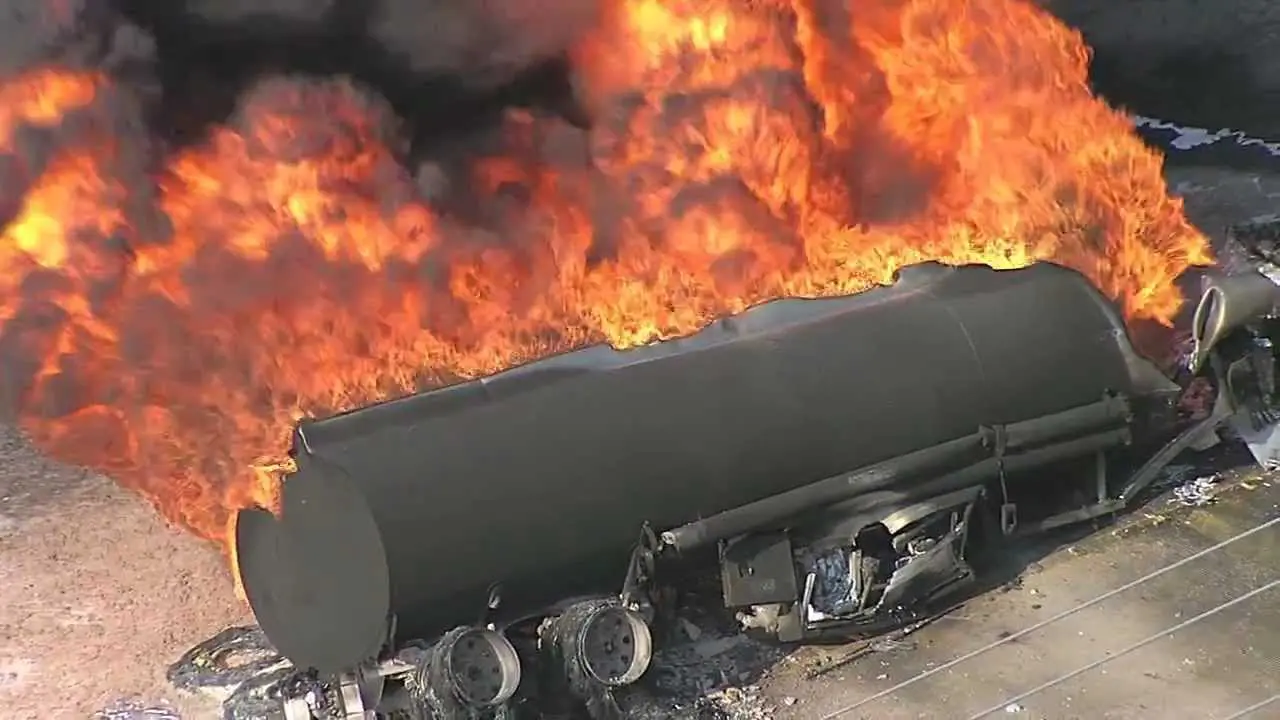An Abuja Federal High Court presided by Justice James Kolawole Omotosho has dismissed a suit seeking to enforce the rights of commercial sex workers to operate without intimidation from security agents of the Federal Government of Nigeria.
The judge held that the prostitutes have no legal rights to enjoy under any known law or the Constitution of the Federal Republic of Nigeria.
In a judgment delivered on Wednesday, Justice Omotosho said that the commercial sex workers were even liable to be arrested, prosecuted and jailed for two years under the criminal law known as Penal Code.
A Non Governmental Organization, Lawyers Alert Initiative for Protection of Rights of Children, Women and Indigent had sued the Abuja Environmental Protection Board, FCT Minister, Federal Capital Territory Administration (FCTA) and the Attorney-General of the Federation (AGF) as 1st to 4th respondents, respectively.
In the suit marked THC/ABJ/CS/642/2024, the sex workers had sought to stop the FCT minister, Nyesom Wike and the Abuja Environmental Protection Board (AEPB) from harrassing, intimidating, arresting and prosecuting them in Abuja.
They asked the judge to enforce their fundamental human rights to prostitution as enshrined in the Nigerian law.
The suit filed on May 14, 2024, through a team of lawyers led by Rommy Mom, Bamidele Jacobs and Victor Eboh, raised two questions for determination by the judge.
It asked the court to determine whether the duties of the AEPB under Section 6 of the AEPB Act, 1997, extends to the harassment, arrest, detention and prosecution of women suspected of engaging in sex work on the streets of Abuja.
“Whether by the provision of Section 35 (1) (d) of the AEPB Act, 1997, women can be regarded as articles or their bodies regarded as goods for purchase?,” the judge was also asked to determine.
The lawyers, therefore, sought a declaration that the charge made by the personnel of the AEPB before the FCT Mobile Court, which referred to arrested women suspected of engaging in sex work as ‘articles’ and considered their bodies as ‘goods for purchase,’ is discriminatory and violated the provisions of Section 42 of the 1999 Constitution.
They sought a declaration that the duties of the Board does not extend to the harassment, arrest and raid of women suspected of engaging in sex work on the streets of Abuja.
They also sought a declaration that neither Section 6 of the AEPB Act, 1997, nor any extant laws of the country, authorise the Board to arrest women suspected of engaging in sex work on the streets of Abuja.
They further sought a declaration that Section 35(1) (d) of the AEPB Act, 1997, does not refer to women as ‘articles’ or their bodies regarded as ‘goods for purchase.’
The lawyers, therefore, prayed the court for an order restraining the AEPB, its agents or privies, from harassing, arresting and raiding women suspected of engaging in sex work on the streets of Abuja.
They sought an order restraining the 1st respondent, her agents or privies from prosecuting women suspected of engaging in sex work on the streets of Abuja under Section 35(1) (d) of the AEPB Act, 1997.
They equally sought an order directing all the respondents to ensure proper application of the provisions of Abuja Environmental Protect Act, 1997, by the 1st respondent.
However, Justice Omotosho, in his judgement, held that the application of the plaintiff was incompetent under the Fundamental Rights (Enforcement Procedure) Rules, 2009.
The judge held that even if it was competent, “the reliefs sought are not grantable and thus, it is hereby dismissed for lack of merit”.
“This court wonders what kind of message the applicant is sending when it decided to bring an action to protect prostitutes.
“A reasonable person would have expected that the applicant would instead occupy itself with developing the girl child and protecting the sanctity of womanhood instead of promoting immorality and the spread of sexual diseases.
“It is indeed shameful that the applicant should file an action such as this,” the judge held
Justice Omotosho also further held that the judgment of a sister court in suit number: FHC/ABJ/CS/971/2019, exhibited by the group was only of slight persuasive authority.
The judge said he was not bound by the decision of the brother judge being court of coordinate jurisdiction, citing a Court of Appeal’s previous case to back his decision
Justice Omotosho, who equally cited Sections 405(2)(d) and 407 of the Act, said “the import of the above provisions is that prostitution constitutes an offence under the Penal Code Act”.
According to him, it must be stated here that fundamental human rights in Nigeria are not absolute in operation. “There are instances which warrant a legal breach of some rights.
“A common instance is for the arrest of a person suspected of committing an offence under Section 35 (1) (c) of the 1999 Constitution (as amended).”
Citing previous cases decided by the Supreme Court, Omotosho held that it was clear from the above authorities that suspicion of committing an offence is a legal ground to breach the right of a person.
“The women suspected of engaging in sex work on the streets of Abuja or prostitutes or vagabonds are by their actions committing an offence and thus their fundamental rights can be legally breached by the ist respondent.
“Holding a different opinion would mean that a person arrested in the process of robbing others can claim to be entitled to his fundamental rights to personal liberty and freedom.
“This would cause anarchy and chaos In the society,” he said adding assuming that prostitution is not an offence in the FCT, the rights of these prostitutes can legally be violated under Section 45 of the constitution which allows the breach of a person’s right on grounds of defence, public safety, public health, public order and public morality.
“It is a known fact that prostitutes are some of the clearest examples of indecency in the society and they are champions of immorality through their immoral dressing, exposing sensitive parts of their bodies, their use of vulgar language as well as the chief culprits in spreading sexual diseases.
“Allowing prostitutes to have free reign on the streets of Abuja will, in no time, destroy the moral fibre of the city and turn it to a hotbed of immorality.
“This court will not allow such to happen,” he said adding that the court was not unaware that prostitution had been legalised in some western nations, including in the Netherlands where prostitutes are now entitled to pensions and other benefits.
“This is not so in Africa. The African Charter on Human and People’s Rights which is one of the Statutes enforced by the Fundamental Rights (Enforcement Procedure) Rules, is clear on what fundamental rights are in Africa.”
He said looking at the preamble to the charter, the culture of Africans must reflect in their idea of what constitutes human rights.
“This philosophy is what is known as cultural relativism in the framework of human rights. The counterpoint to this is universality which posits that human rights should be the same in all places and should apply to persons irrespective of their culture, religion, race, gender or other differences.
“The idea behind universalism is to ensure uniformity in human rights development. Universality of human rights directly led to the drafting of the Universal Declaration of Human Rights which is the first global human rights document.
“While it is theoretically sound, universalism if applied would offend the unique cultures of some people.
“For instance, the right to same sex marriage which is acceptable in Western nations like the United Kingdom will be deeply unacceptable to conservative and religious nations like Arab nations.
“Thus cultural relativism means that these nations can choose which of these rights to adopt or not.
“This explains why some conservative nations exercise their right to reservation regarding several sections of the Universal Declaration of Human Rights which are in conflict with their cultural beliefs.”
The judge said Nigeria is an African nation with deeply cultural norms that guide everyday conduct.
“I daresay that prostitution is alien and has never been part of our culture. Prostitution or ‘Olosho’ and ‘Ashewo’ as the Yorubas call it, ‘Akwuna-Akwuna’ as the Igbos call it, ‘Karuwa’ as the Hausas call it or ‘Hookup’ as the young people say it, is alien to our culture.
“It has been frowned upon as a deeply immoral act worthy of shame.The fact that civilisation and westernisation has taken some root in Nigeria still does not make it right.
“Even in some Western countries, prostitution is still seen as an immoral act.
“In the United States of America for instance, apart from a few counties in the state of Nevada, prostitution or sex work is illegal in the other 50 states of the US.
“There is absolutely no justification for prostitution in Nigeria in the context of our cultural norms and tradition and in fact prostitution is an anathema in Africa,” he said.
Justice Omotosho held that the prostitutes which the group sought to protect “are vagabonds” and the AEPB is well within its right to arrest and prosecute them as they constitute nuisance in the FCT and are clearly committing an offence by parading themselves as “women of easy virtue.”
“I therefore hold that this application filed by the applicant has no basis and the rights claimed are unenforceable in light of the provisions of Section 45 of the Constitution of the Federal Republic of Nigeria 1999 (as amended) and the Preamble to the African Charter on Human and Peoples Rights,” he declared.

 Society7 years ago
Society7 years ago
 Society4 years ago
Society4 years ago
 News and Report6 years ago
News and Report6 years ago
 News and Report7 years ago
News and Report7 years ago
 Society4 years ago
Society4 years ago
 News and Report6 years ago
News and Report6 years ago











